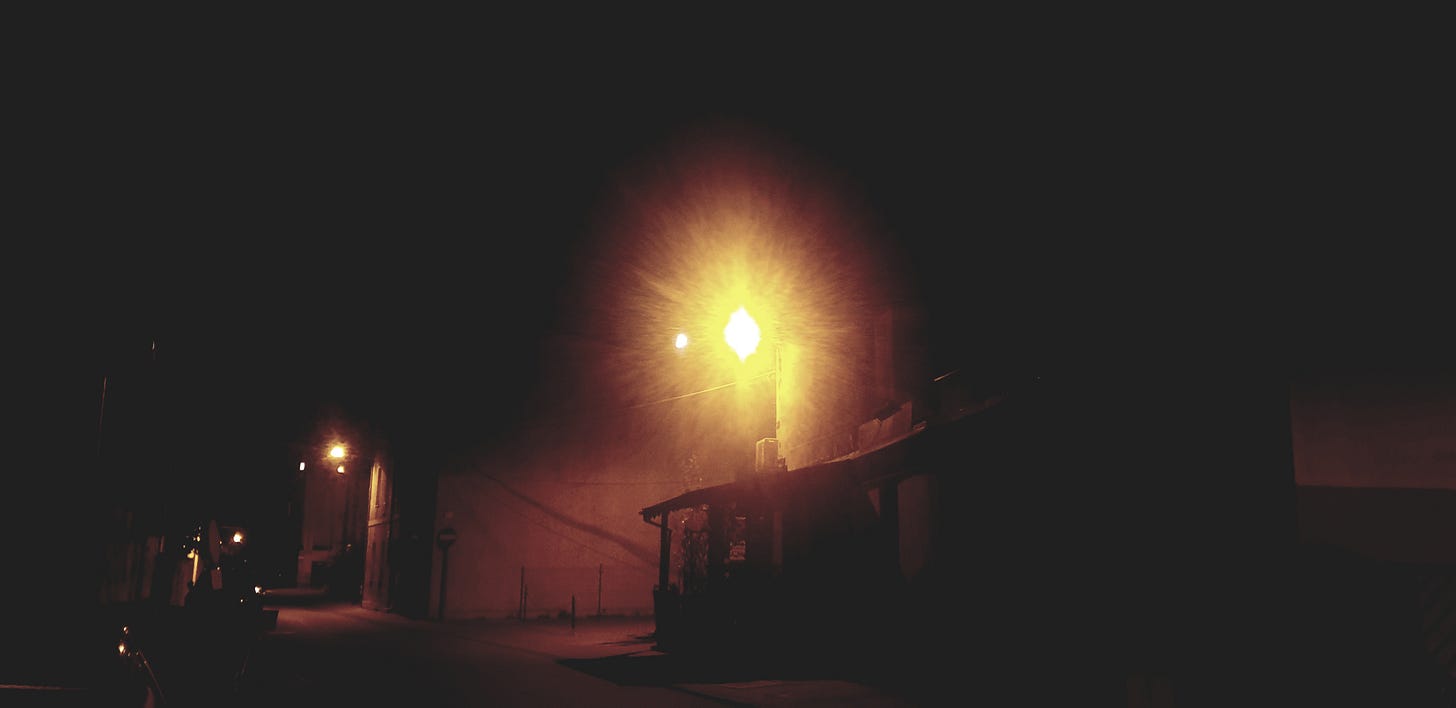"Newsletters, Newsletters, Talk About Substacks, My One's Better" Edition
Hello,
Obligatory shilling. It was a productive week (though I wish it could have been one article less so). I wrote for The Critic about the sad relationship between British drill music and organised crime.
Also for The Critic, I wrote a tribute to Norm Macdonald, my favourite comedian, who has died too soon.
I wrote for UnHerd about the pitfalls of writing about countries other than your own.
I wrote for my paying subscribers about personal discipline, and about walking and the second order consequences of crime, and about my office.
Home front. This week marks eight years since I first moved to Poland. I wrote for my paying subscribers about why, but the short version is that I was looking for a job and happened to be offered one over here (in education - not in politics or writing). I've been living in the same town ever since. I'm thankful for my good luck. I never wish that I had ended up anywhere else.
Drill, outro. I could have told a thousand other gruesome stories in my piece about drill and crime: about the rapper who kidnapped and tortured a 16-year-old, or about the rapper who went nuts and stabbed four people outside a club, or about the rapper who had a comfortable upbringing and a private education but slid into gang life, went on an alleged criminal rampage, and was shot in the head in Wood Green. I think the most poignant was the rapper who filmed a video for this eerie, haunting song and was stabbed to death almost immediately afterwards.
To add a more positive note, though, the rapper AB has released a song called “Street Cursed”, which gloomily exposes the reality of gang life. It is not the sort of poetic and philosophical “social conscious” rap which tends to be enjoyed by thirty-something white people like me. It is a blunt warning from a prematurely old man to kids who get sucked into fantasies of masculine glamour: “Long story short, you might end up in the grave or court.” Many of these guys are talented - I was not kidding when I said that I cannot help appreciating the music - but when your appeal rests on your criminal credibility, your chances of achieving success without being killed or jailed are minimal.
Our castles. In the new edition of Works in Progress, Sam Bowman, John Myers and Ben Southwood make the case for more housing:
If we’re right about this, it means that fixing this one problem could make everyone’s lives much better than almost anyone realises – not just by making houses cheaper, but giving people better jobs, a better quality of life, more cohesive communities, bigger families and healthier lives.
I disagree with self-styled neoliberals on many things but this is not one of them. I might still disagree on where to build, and on the benefits of continually expanding demand, but the economic and psychological effects of the tyranny of renting are serious.
The dipso clergyman. Matthew Walther writes so wonderfully about Burton's The Anatomy of Melancholy - one of my favourite books - that my enjoyment is tinged with something close to jealousy:
The Anatomy is often compared to a labyrinth, perhaps under the influence of Borges, who greatly admired it. But it is really more like a country house: a ramshackle but nevertheless impressive old pile, its galleries and antechambers full of fine portraits and statues, but also trick mirrors and pornographic miniatures hidden away in cabinets; there are whoopee cushions on some of the Queen Anne chairs, and your tour guide is a dipso clergyman who cannot remember whether he is playing an elaborate joke or giving you spiritual direction.
You should buy this book.
Highly suspicious. Also in the new edition of Works in Progress, the great Sarah Perry explores “sketchy science”:
In my experience as a bad-science enthusiast, the best way to identify sketchy scientific claims is by their level of abstraction. If a new paper claims that giant sloths were more common in present-day Arizona than in present-day Nevada before the last ice age, I would not identify that as a sketchy claim; it is limited in time and place, and not particularly abstract. However, if a new paper claims that attractive people are more (or less) generous than ugly people, I would be highly suspicious. “Generosity” is a very abstract and nebulous quality, and I would want to know how it was measured—and I know I would not be satisfied with the answer (it will be a survey or an economic simulation game). The profound abstractions of everyday life—happiness, relationships, sleep, nutrition, motivation, pain, belonging—are the concepts most vulnerable to scientific abuse.
Sadly, the latter sort of “science” is most tantalising for the media.
The Worst Durst. Multi-millionaire real estate heir Robert Durst has finally been convicted of murder, which should come as no surprise as he confessed on a hot mic while filming the excellent true crime documentary The Jinx.
Have a lovely week,
Ben




